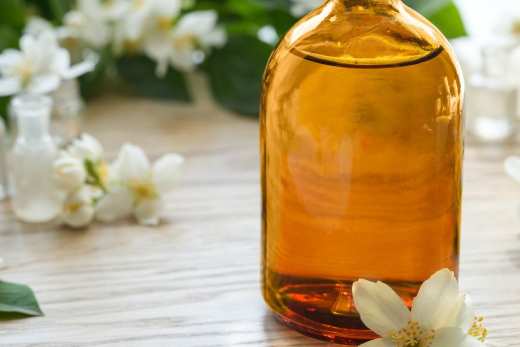For thousands of years, fragrance has enchanted our senses. But who had the first idea of capturing these sublime scents? The Sumerians, the Egyptians, and other ancient civilizations created perfume for spiritual, social, and aesthetic reasons. This article explores the fascinating origins of this millennia-old invention and the motivations behind this olfactory quest.
The first traces of perfume in Antiquity

The earliest traces of perfume date back to Antiquity. These civilizations used natural ingredients such as flowers, herbs, and resins to create fragrances, often in a religious or therapeutic context. Their mastery of manufacturing techniques marked the beginning of the history of perfumery.
The Sumerians: Pioneers in Perfumery
The Sumerians, an ancient people established in the region we now know as Iraq, are often considered among the first to have used fragrances. Researchers have discovered clay tablets dating back to 3000 BC containing detailed recipes for perfumes and incense. These recipes mix oils, herbs, and flowers.
Why were the Sumerians so fascinated by perfume? Some theorize that it was for religious and spiritual reasons. Perfume was used in temples to honor the gods and goddesses. Other sources indicate that it was also a status symbol, reserved for the elite and important ceremonies.
Tapputi: The First Perfumer in History

Long after the Sumerians, around 1200 BC, Tapputi, a woman living in Mesopotamia, is mentioned as the first documented chemist and perfumer. Tapputi used distillation techniques to blend flowers, oils, and resins, thus creating refined perfumes. Her contributions marked a turning point in the history of perfumery, perfecting methods that would influence future generations. To learn more about the exact definition and composition of fragrances, discover our article: What is a Perfume ?.
The Egyptians: Masters in the Art of Perfumery
In Ancient Egypt, perfume had particular significance. The Egyptians used local ingredients such as blue lotus and myrrh to create their perfumes. The tombs of pharaohs often contained flacons of perfume, underscoring their priceless value.
The manufacturing process involved long macerations and distillations to capture the essence of the plants. Notably, the famous Cleopatra is said to have used perfumes not only for her beauty but also to seduce her visitors. The notion of seduction and spirituality combined to form a unique use of perfume in this civilization.
If this exploration of the origins of perfume has inspired you, discover the modern creations of French perfumery on Ulric de Varens, where unique fragrances continue to captivate the senses, perpetuating this millennia-old tradition.
What is the oldest perfume?

The oldest perfume ever discovered dates back over 4,000 years and was found in Cyprus, in an ancient perfume factory from the Bronze Age. This archaeological discovery revealed residues of fragrances in terracotta jars, containing extracts of herbs, spices, and flowers, such as coriander, bay, rosemary, and cypress. These ingredients were mixed with oils and natural essences to produce perfumes, often used in religious rituals and funeral ceremonies. This shows that perfumery has deep roots in human history, long before the modern era.
Why did humanity invent perfume?

The reasons behind the invention of perfume are multiple and vary across cultures and eras. In early civilizations, the motivations were often linked to religion and spirituality. Perfumes were used in temples to honor the gods, purify sacred spaces, and accompany prayers and funeral rituals. Incense, for example, symbolized the elevation of prayers to the heavens.
But the social and personal uses of perfume were also significant. In Egypt and Mesopotamia, perfume played a role in elevating social status. It was reserved for the elites, kings, priests, and the wealthiest members of society. The use of fragrances not only marked one’s rank but also improved personal hygiene, a particularly valued element in these civilizations.
Another key factor is the idea of seduction and attraction. From Cleopatra to modern times, perfumes have often been used to charm and seduce. They were perceived as an extension of personal beauty, capable of evoking emotions, sparking desires, and establishing emotional connections.
Finally, some believed that perfumes had therapeutic virtues. In ancient Greece and Rome, scents were often associated with health benefits. The use of essential oils and aromatic plants in baths and massages aimed to heal, soothe, and revitalize the body and mind.




